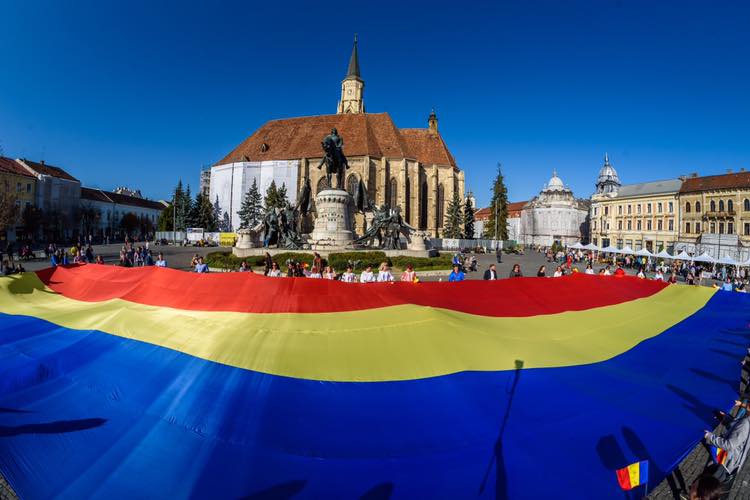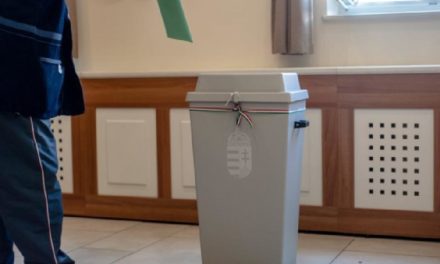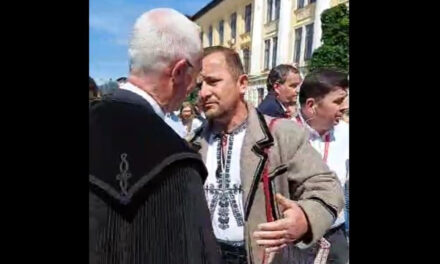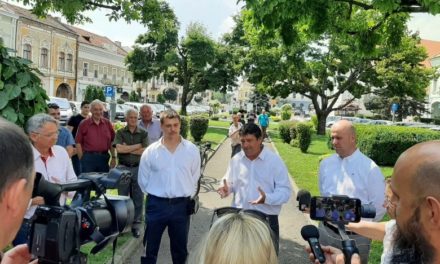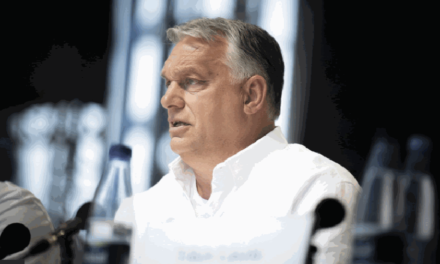The book of retired diplomat László Alföldi recalls almost thirty years of Romanian-Hungarian relations, which was presented at the Consulate General of Hungary in Cluj-Napoca on Wednesday afternoon as part of the Hungarian Days in Cluj-Napoca.
The author dealt with Romanian relations as a Hungarian diplomat for almost three decades. His first four-year consular mandate in Cluj ended in 1988 when he was expelled by the Romanian communist government. Between 1990 and 1996 he performed diplomatic service at the embassy in Bucharest, then between 1999 and 2003 at the reopened consulate general in Cluj, between 2006 and 2011 again at the embassy in Bucharest, and during the intervening periods he dealt with Romanian affairs at the Ministry of Foreign Affairs in Budapest.
Zsolt Németh , chairman of the Foreign Affairs Committee of the Parliament, said: for the Hungarian diplomats working in Romania, service was not characterized by champagne toasts. Their work was carried out on the front line of Romanian-Hungarian relations, because the thirty years covered by the book were the most important period of the formation of Hungarian national politics and the self-discovery of Transylvanian Hungarians.
The Fidesz politician believed that Hungarian national policy cannot be interpreted without diplomacy, and Hungarian diplomacy should not be considered without national political tasks. Zsolt Németh thanked László Alföldi for his service and for writing down his memories.
László Alföldi recalled: during the communist dictatorship, diplomatic relations were characterized by this sentence: "we know, comrades, that there are problems, but we try to see the good". He added: as consul in Cluj, he focused even then on getting to know the expectations of the Transylvanian Hungarians towards the motherland and conveying them to Budapest. He recalled: In December 1989, the ambassador of Romania in Budapest handed over a protest list at the Ministry of Foreign Affairs in Budapest, when he learned from him that the communist dictator Nicolae Ceausescu had fled.
The diplomat evaluated the fact that at the beginning of 1990 they hoped for a radical improvement in Romanian-Hungarian relations as a sign of former naivety. He added that the bloody clash in March 1990 in Marosvásárhely, for which the Romanian authorities at the time blamed the Hungarians, had a sobering effect.
He recalled: when he returned to Cluj-Napoca as consul general in 1996, a large sign was waiting for him in front of the consulate building, which read: "here is the Hungarian spy center". The ultra-nationalist mayor of the city at the time, Gheorghe Funar, demanded for weeks that he be expelled from Romania again. At the Ministry of Foreign Affairs in Bucharest, however, he was welcomed as an old acquaintance and wished him success in his service, but also advised him to be careful with Funar.
When asked by MTI, the diplomat said:
although they tried in vain to improve Romanian-Hungarian relations, they were always faced with the fact that there were serious obstacles and obstacles to this. However, he added that the world has changed a lot in this area as well.
As an example, he mentioned that they hold one-week Hungarian days in Cluj-Napoca, during which he can also present his book.
Csaba Grezsa , the recently appointed Consul General in Cluj, said that part of his preparation for the position was getting to know László Alföldi's book. He believed that his predecessor had set a model for how a Hungarian diplomat should act in this system of relations.
László Alföldi From Cluj to Bucharest was published by the Pro Minoritate Foundation and Méry Ratio publishing house.
MTI
Cover image: Illustration / Photo: TNL Cluj Facebook

